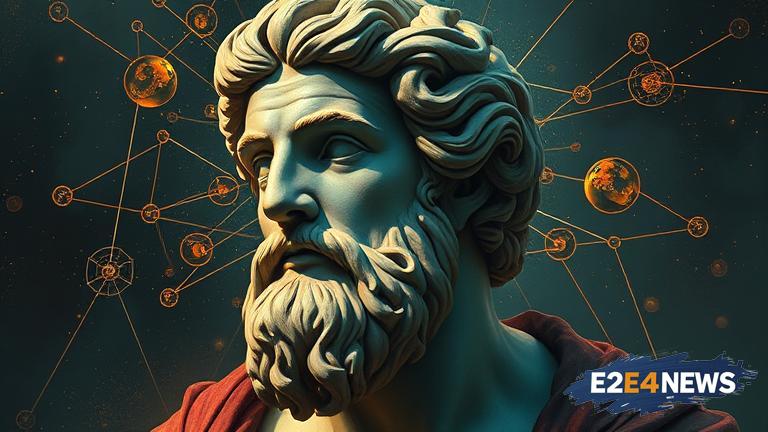The advent of Aristotle X1 marks a significant milestone in the development of artificial intelligence, as it pioneers a novel approach to human-centric intelligence. This innovative AI system is designed to reason and learn in a manner that is more relatable to human thought processes, thereby fostering a deeper sense of trust between humans and machines. By integrating cognitive architectures and machine learning algorithms, Aristotle X1 enables more effective collaboration between humans and AI systems. This synergy has the potential to revolutionize various industries, including healthcare, finance, and education, by providing more accurate and informed decision-making. The core strength of Aristotle X1 lies in its ability to understand and adapt to complex human behaviors, allowing it to navigate intricate social dynamics with ease. Furthermore, this AI system is capable of explaining its reasoning and decision-making processes in a transparent and comprehensible manner, which is essential for building trust with human users. The development of Aristotle X1 is a testament to the rapid progress being made in the field of artificial intelligence, as researchers and scientists continue to push the boundaries of what is possible. As AI technology advances, it is likely that we will see more sophisticated systems like Aristotle X1 emerge, which will have a profound impact on our daily lives. The potential applications of Aristotle X1 are vast and varied, ranging from personalized medicine to intelligent tutoring systems. In the realm of healthcare, Aristotle X1 could be used to analyze medical data and provide more accurate diagnoses, while in education, it could help create customized learning plans tailored to individual students’ needs. The financial sector could also benefit from Aristotle X1’s advanced analytical capabilities, enabling more informed investment decisions and risk assessments. Moreover, the integration of Aristotle X1 with other emerging technologies, such as the Internet of Things (IoT) and blockchain, could lead to the creation of even more powerful and secure AI systems. As we move forward in this new era of human-centric intelligence, it is essential to address the ethical implications of AI development and ensure that these systems are designed with transparency, accountability, and fairness in mind. The future of AI holds tremendous promise, and Aristotle X1 is at the forefront of this revolution, paving the way for a new generation of intelligent machines that can collaborate with humans in a more seamless and trustworthy manner. With its advanced reasoning capabilities and human-centric approach, Aristotle X1 is poised to make a significant impact on various aspects of our lives, from healthcare and education to finance and beyond. As researchers continue to refine and improve this AI system, we can expect to see even more innovative applications emerge, transforming the way we live and work. The development of Aristotle X1 is a shining example of the power of human ingenuity and the boundless potential of artificial intelligence. As we embark on this exciting journey, it is crucial to prioritize responsible AI development and ensure that these systems are aligned with human values and principles. By doing so, we can unlock the full potential of AI and create a brighter, more intelligent future for all. The emergence of Aristotle X1 is a significant step forward in the pursuit of human-centric intelligence, and its impact will be felt across various industries and domains. As we continue to explore the possibilities of AI, it is essential to maintain a human-centered approach, prioritizing transparency, trust, and accountability in all aspects of AI development. The future of AI is bright, and Aristotle X1 is leading the way, forging a new frontier in human-centric intelligence that will revolutionize the way we live, work, and interact with machines.
